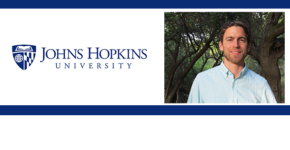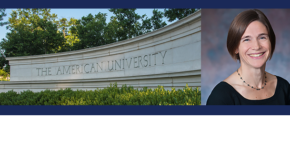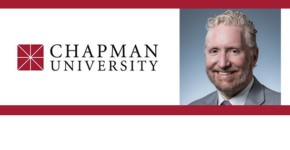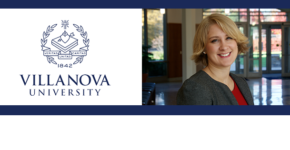Category: Health
-

Nicholas Port, Indiana University – Subconcussions
Not every athlete with a brain injury has been diagnosed with a concussion. Nicholas Port, associate professor at the School of Optometry at Indiana University, looks into other aspects of sports that could contribute to these injuries. Dr. Nicholas Port completed his undergraduate training at NYU’s Center for Neural Science (1990) and completed his pre-graduate…
-

Janice Stapley, Monmouth University – Female Student Athletes and Concussions
How do we protect athletes from concussions? Janice Stapley, associate professor of psychology at Monmouth University, look at safety for female Division 1 athletes. I am an Applied Developmental Psychologist with research experience in Emotional Intelligence and Emotion Regulation and the developmental periods of Adolescence and Emerging Adulthood. I do mixed methods research and have…
-

Franziska Landes, Columbia University – Lead in Soil
On this Student Spotlight: Kids love playing in the dirt, but can it be harmful? Franziska Landes, graduate student in Earth and Environmental Sciences at Columbia University, warns danger can be just below their feet. Franziska Landes is a fifth year Ph.D. student in the Earth and Environmental Science program at Columbia University. She is…
-

Carsten Prasse, Johns Hopkins University – Water Purification
We need to purify water, but can we do it better? Carsten Prasse, assistant professor of environmental health & engineering at Johns Hopkins University, explains some unwanted chemicals may be a byproduct of purification. Carsten Prasse’s research is driven by a fascination with water chemistry and a deep concern about the public and environmental health…
-

Bodil Just Christensen, University of Copenhagen – Eating as a Tool to Avoid Regaining Weight
Eating can be a tool to help keep weight off. Bodil Just Christensen, postdoctoral fellow at the University of Copenhagen, explains why how you think about eating food can help you stay thin. Eating as a Tool to Avoid Regaining Weight The hardest thing about weight loss is to maintain it. My colleagues and I…
-

Rachel Durso, Washington College – Using GIS to Help Victims of Domestic Violence
On Washington College Week: Helping domestic violence victims can be hard in isolated areas. Rachel Durso, assistant professor of sociology at Washington College, describes using data points to bring help to areas that need it. Professor Durso’s primary research area examines the consequences of mass incarceration in the United States in the 21st century. This…
-

Bill Schindler, Washington College – Reinventing Food Systems by Incorporating our Dietary Past
On Washington College Week: Did we eat healthier millions of years ago? Bill Schindler, associate professor of anthropology at Washington College, discusses why today’s dietary culture is out of whack with our body’s needs. Dr. Bill Schindler is the director of the Eastern Shore Food Lab and an Associate Professor of Anthropology and Archaeology at…
-

Rachel Robinson, American University – How to Ensure Access to Sexuality Education for Teenagers
On American University Week: How do we ensure students get sexual education? Rachel Robinson, associate professor at the school of international service at American University, explores how two different communities did just that. Dr. Robinson is a sociologist and demographer whose research focuses on global health interventions in sub-Saharan Africa, including family planning, HIV/AIDS, and…
-

Sean Nordt, Chapman University – Teen Energy Drink Use
Energy drinks are everywhere today. Sean Nordt, professor of pharmacy at Chapman University, looks into the effect these drinks have on the teens who consume them regularly. Sean Patrick Nordt, M.D., Pharm.D. is the Associate Dean of Academic Affairs, Chief Medical Officer and the Gavin Herbert Endowed Professor of Pharmacy at the Chapman University School…
-

Meredith MacKenzie Greenle, Villanova University – Informal Caregivers
Caregivers for hospice patients also need some help. Meredith MacKenzie Greenle, Assistant Professor at the M. Louise Fitzpatrick College of Nursing at Villanova University, details how we can care for the caregivers. Negotiating end-of-life care can leave many family members and loved-ones of the elderly searching for support. Meredith MacKenzie Greenle, PhD, RN, ANP-BC, CNE…
